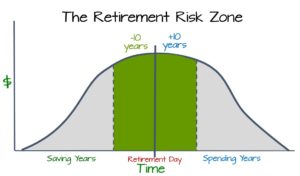 Retirees, or those close to retirement, may have several buckets from which to withdraw income in retirement.
Retirees, or those close to retirement, may have several buckets from which to withdraw income in retirement.
There may be assets in RRSPs, taxable or non-registered investment accounts, TFSAs, and possibly corporate or small business assets. At retirement you need to consider which of these accounts to tap into first.
To further complicate matters you might also have income from a workplace pension, not to mention government benefits such as CPP and OAS (and when to apply for these benefits).
The natural inclination, both from a behavioural and a tax planning perspective, is to put off paying taxes for as long as possible. For Canadians, that means leaving assets inside their RRSP(s) until age 71, converting their RRSP into a RRIF, and beginning RRIF withdrawals in the year they turn 72.
Delaying CPP and OAS
Also worth consideration is the incentive for retirees to delay their application for CPP and OAS until age 70. Do this and your CPP benefits will increase by 42 per cent and OAS benefits will rise by 36 per cent versus taking these entitlements at 65.
Tax-Free Savings Accounts (TFSAs) have been around for less than a decade but already play a critical role in retirement planning. Money saved inside a TFSA grows tax-free and you pay no tax on withdrawals. For retirees, an added benefit of TFSAs is that any money withdrawn does not affect means-tested programs such as OAS and GIS, so there’s no chance that a clawback will be triggered by this income.





